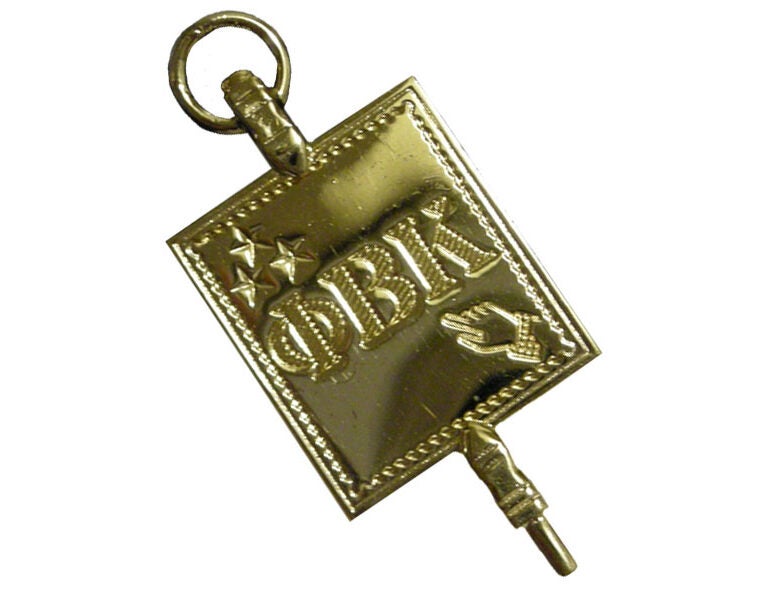Phi Beta Kappa Honor Society
Founded on December 5, 1776, Phi Beta Kappa is the nation’s oldest academic honor society. Phi Beta Kappa originated as a secret society at the College of William and Mary in Willamsburg, Virginia. The Society was named after Greek-letter initials, ФBK, of a secret Greek motto which translates to “Love of learning is the guide of life.” The Society set the tradition of naming collegiate societies after Greek initials, which has been adopted by American college fraternities and sororities.
Since inception, 293 chapters have been established at America’s leading colleges and universities.
The USC Chapter, Epsilon of California, was founded in 1929. Every year, about five to ten percent of the arts and sciences undergraduates are selected for membership and are inducted at an induction ceremony.
Students who are elected to the Society represent excellence in the liberal arts and sciences. They demonstrate intellectual integrity, tolerance for other views and a broad range of academic interests. Among those who have been inducted into the Society are 17 U.S. Presidents, 42 U.S. Supreme Court Justices and more than 150 Nobel Laureates.
The selectivity of membership, as well as the society’s rich history, is the reason that Phi Beta Kappa is considered among the most prestigious American college honor societies.
Phi Beta Kappa Key
The symbol of Phi Beta Kappa is a golden key bearing three stars, a pointing finger and the Greek initials of the Society, Phi Beta Kappa. The stars represent the three distinguishing principles of the Society: friendship, morality and learning. The pointing finger symbolizes ambition of the members to attain these principles. On the reverse, the initials SP stand for the Latin words Societas Philosophiae, or “Philosophical Society.
